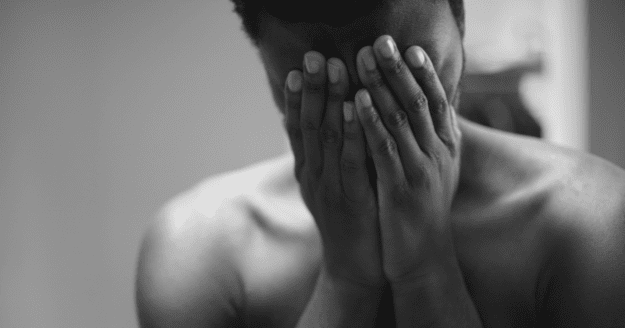October 10th is World Mental Health Day—a day to recognize that mental health, although stigmatized, is a serious concern that most, if not all, have issues with during their lives. The World Health Organization states that “half of all mental illness begins by the age of 14, but most cases go undetected and untreated.” And it’s true! Many of us suppress a lot of our daily angst until we reach a breaking point and then we choose to seek out, or ignore, our anxiety or depression.
It’s no secret that the LGBTQIA community struggle with mental health illness primarily because many of us have suffered some form of trauma or continue to live through daily issues that interfere with our health. Many have struggled with bullying, body image, lack of strong support systems, or even dealing with microaggressions at work that could lead to internalizing emotion. Bottling all of this up can take a toll on you until you reach a tipping point where you don’t know what to do.
WHO also adds:
Adolescence and the early years of adulthood are a time of life when many changes occur, for example changing schools, leaving home, and starting university or a new job. For many, these are exciting times. They can also be times of stress and apprehension however. In some cases, if not recognized and managed, these feelings can lead to mental illness. The expanding use of online technologies, while undoubtedly bringing many benefits, can also bring additional pressures, as connectivity to virtual networks at any time of the day and night grows. Many adolescents are also living in areas affected by humanitarian emergencies such as conflicts, natural disasters and epidemics. Young people living in situations such as these are particularly vulnerable to mental distress and illness.
There are many dangers associated to mental health disorders that go unaddressed.
Mental disorders comprise a broad range of problems, with different symptoms. However, they are generally characterized by some combination of abnormal thoughts, emotions, behaviour and relationships with others. Examples are schizophrenia, depression, intellectual disabilities and disorders due to drug abuse. Most of these disorders can be successfully treated.
So what can we do? For ourselves—for each other.
For starters, talking to someone is a great way to deal with mental health issues. Seek out the help of a therapist who can help guide you toward getting back on track and living your best, healthy life.
Also, don’t be afraid to take a step back from the stress. We all need to practice self-care. If that means saying “NO” to more things or taking a back seat on projects or simply sleeping in or staying in, away from the chaos, then do it! There is nothing better you can do for yourself than to allow yourself to recharge and re-emerge with a new outlook on life. Take some time to reevaluate your priorities and do the things that make you the happiest.
If you know someone who is exhibiting symptoms or who seems like may need help, be the support system they may need to get their journey started. Offer to meet for coffee or a meal and lend an open mind and heart to them.
Here are some other meaningful ways to conquer mental health disorder:
WHO also shares that prevention begins with better understanding:
Much can be done to help build mental resilience from an early age to help prevent mental distress and illness among adolescents and young adults, and to manage and recover from mental illness. Prevention begins with being aware of and understanding the early warning signs and symptoms of mental illness. Parents and teachers can help build life skills of children and adolescents to help them cope with everyday challenges at home and at school. Psychosocial support can be provided in schools and other community settings and of course training for health workers to enable them to detect and manage mental health disorders can be put in place, improved or expanded.
Investment by governments and the involvement of the social, health and education sectors in comprehensive, integrated, evidence-based programmes for the mental health of young people is essential. This investment should be linked to programmes to raise awareness among adolescents and young adults of ways to look after their mental health and to help peers, parents and teachers know how to support their friends, children and students. This is the focus for this year’s World Mental Health Day.
We are not alone in this mental health struggle. Most people you know may be struggling with something so you should never be afraid to ask for help or to reach out to others if you think they need help. Never feel ashamed or embarrassed because YOU ARE WORTH IT!
Most importantly, if only for today, make it a point to spread awareness about mental health disorders.
For more helpful information on the mental health, visit World Health Organization and take a look at their Mental Health Action Plan.
If you or anyone you know is feeling suicidal, contact National Suicide Prevention Lifeline (800) 273-8255
The Lifeline provides 24/7, free and confidential support for people in distress, prevention and crisis resources for you or your loved ones, and best practices for professionals.



